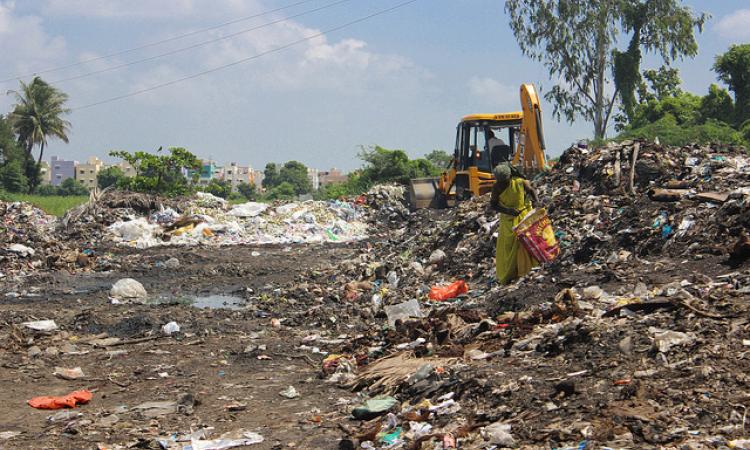
Popular climate change discourse usually tends to vilify carbon dioxide. But a more potent polluter lays unnoticed in our midst – Methane. Putrid solid waste lying around contributes heavily to the release of methane into the atmosphere. It resides in the atmosphere for a much shorter duration than carbon dioxide but traps radiation more effectively, contributing to the global rise in temperatures.
The menace of dealing with solid waste is directly related to the increase in population in towns and cities. Cities and larger towns bear the brunt as the production of solid waste per capita per day is about 0.4 to 0.5 kg, whereas in small towns it’s a mere 0.1 kg. However, the infrastructure to collect and dispose of waste is much better in bigger town and cities due to improved access to the government’s financial resources. In spite of all the man and machine power, spotting waste strewn along the roadside is not uncommon.
But change is not impossible. Non-Governmental Organisations can play a pivotal role in changing the Solid Waste Management (SWM) scenario of towns. One of the more prominent NGOs, Sulabh International Social Service Organisation has been working for decades to eliminate the solid waste as well as open defecation concerns across the country. Similarly there are other organizations, big and small, working towards minimizing the SWM problem. The government, for its part, has passed orders in 2000 making municipalities responsible for framing rules and erecting the necessary infrastructure for colleting, handling and disposing of solid waste.
The most preferred way to dispose of solid waste is to dump them in landfills. Care should be taken as improper disposal can pollute the underlying ground water. These landfill sites should be properly capped and sealed to prevent any water or air pollution due to release of harmful gases and toxic leachates.
Reduce, Reuse, Recycle
Reducing the amount of solid waste generated is a problem in itself. When the quantum of waste generated reduces, the pressure to get rid of it also eases. There are several easy ways to reduce the amount of solid waste generated in households.
It would make more economical as well as environmental sense to purchase items that can be reused. Kitchen waste can be left out of the daily trash bag by dumping them in gardens instead. Avoid unnecessary packaging and reuse accumulated plastic bags as much as possible before discarding them.
Commitment both at the community as well as the administrative levels is crucial for the successful management of solid waste in any locality. Residents can do their bit by reducing as well as segregating waste. The local administration should give due importance to solid waste management and ensure that the collection and transportation machinery functions without causing any inconvenience to the residents or the environment.